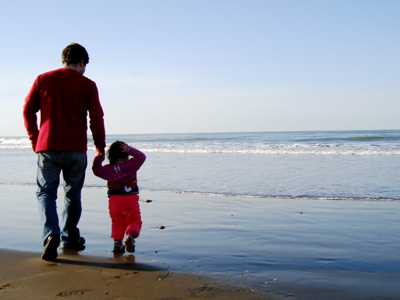Give Your Child Tolerable Doses of Stress
| Dan Bolton 01/11/2013 |

Research on PTSD has revealed not only the havoc that can be wreaked on the brain when it is completely overwhelmed beyond it’s ability to respond, but is also teaching us about the benefit of exposure to more manageable, tolerable doses of stress.
Studies have shown that when people are exposed to extreme, uncontrollable situations as children that harm is done to the brain’s ability to handle stress later in life. In response to early and overwhelmed stress, as in the case of physical abuse, sexual abuse, and even chronic emotional abuse or neglect, the brains natural ability to respond and adapt to stressful events is compromised due to changes in the brain circuits responsible for handling stress. “Early abuse or stress can cause long standing changes in brain circuits associated with resilience and learning.” One example is that children who were abused were found to have higher levels of stress hormones, such as cortisol, as adults compared to those who were not abused as children. In his book, A Magnificent Mind at Any Age, Amen writes that, “Long-term exposure to stress hormones has been found to kill cells in the hippocampus, part of the limbic brain deep in the temporal lobes, involved with memory, learning, and emotion.” New research has pinpointed a strong relationship between depression, stress, and the serotonin transporter gene 5 -HTTLPR, which moderates the relationship between stress and depression. The current model of SSRI’s assumes that a lower homeostatic level of serotonin is primarily responsible for depression, and these new studies are showing why. There is evidence of a robust relationship between 5-HTTLPR and depression among those exposed to maltreatment as children as compared to those exposed to stressful life events (SLE’s). Stressful life events may improve a child’s ability to endure stress later in life, while trauma and maltreatment undermines the brain’s ability to utilize neurotransmitters to modulate stress. So, people who have experienced trauma or maltreatment as a child can have intense and exaggerated responses, like intense anxiety and/or depression, to minor stressors or stressful life events, whereas children who have been exposed to stressful events in tolerable doses growing up tend to deal with stressful life events well.
These new findings remind me a paper the famous child psychoanalyst, D.W. Winnicott wrote 60 years prior called “The World in Small Doses”. Winnicott was unique in that he did not limit his work to interpretation of intrapsychic conflict, like most other psychoanalysts, but made a point of giving advice, particularly when it came to the emotional development of children.
Emotional health, Winnicott said, was strongly related to development of the inner life of the child, specifically how the inner life/imagination of the child links up with external reality. When there are profound disturbances, and reality is introduced too strongly, as in trauma in the early years of childhood, the consequence is that the child will latch onto his or her inner world of fantasy, which in later childhood and adulthood ingrain themselves as delusions or to pathological avoidance of external reality.
Events do not always play out in this extreme, but parents and children are faced with more mundane challenges in everyday life that serve as the building blocks for the child’s sense of security, identity, and emotional health.
We, as adults, are constantly getting the world in larger and larger doses, with the push to be productive, the flood of constant marketing, and because of this influence we are at times exposing out children to the world in larger doses than is good for them. This stress is felt in the increasing demands our children our facing at school, the around the clock focus of schools on performance on achievement testing, and even the push to be competitive for the future in the world economy. We reinforce this stress with our own demands for children to come right from school and at times do hours worth of homework. At what point does it become too much? Brain research shows that the best way to improve performance on said achievement testing is exercise. Exercise opens up the Hippocampus, helping children to be more receptive and better retain what they are being taught. Burning the candle at both ends increases stress levels, and decreases the brains capacity to learn. Our own stress levels lead to us being short with our children, and at times expecting more from them than they are able. We may not be present with them, or spending the quality time they really need with us.
Take the time to be with your child. Listen to his or her perspectives about the world and what is going on in their lives without judging or trying to change what they think. Let them dream, and let them have their own experiences. Support them in coming up with their own creative solutions. Most importantly let them PLAY, and take time to play with them. Play is the healthiest thing a child can do. Help them play with reality, a little bit at a time, so that they can gradually familiarize themselves to a life with adult responsibility. This way you can follow D.W. Winnicott’s wise advice and give our children the World in Small Doses.
